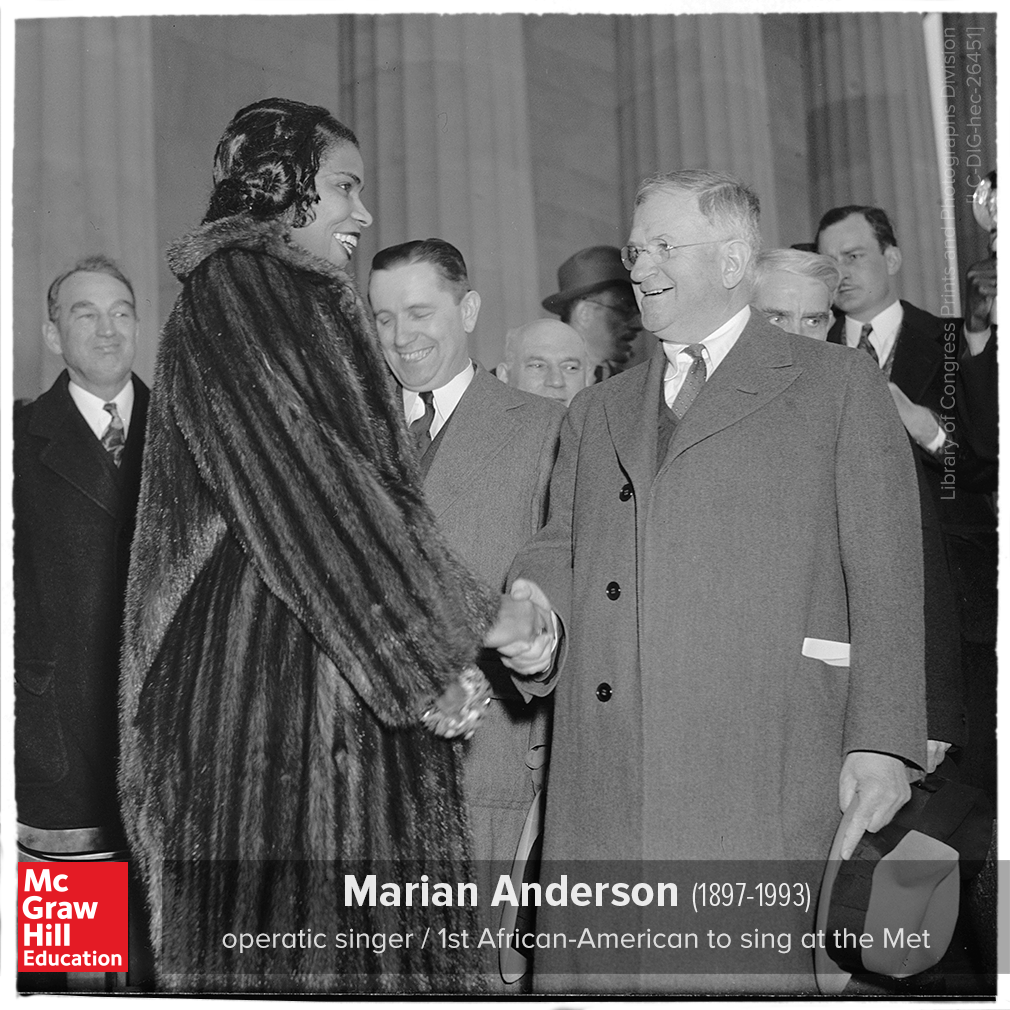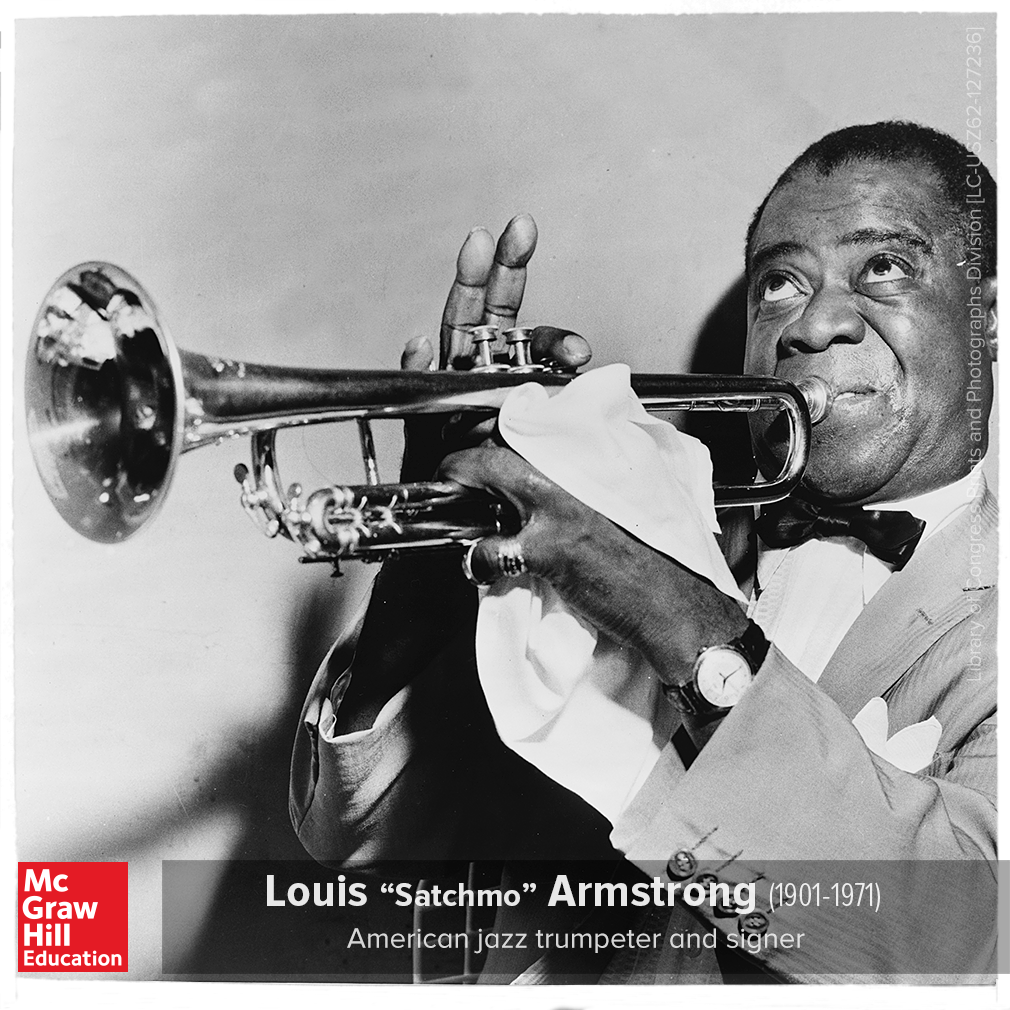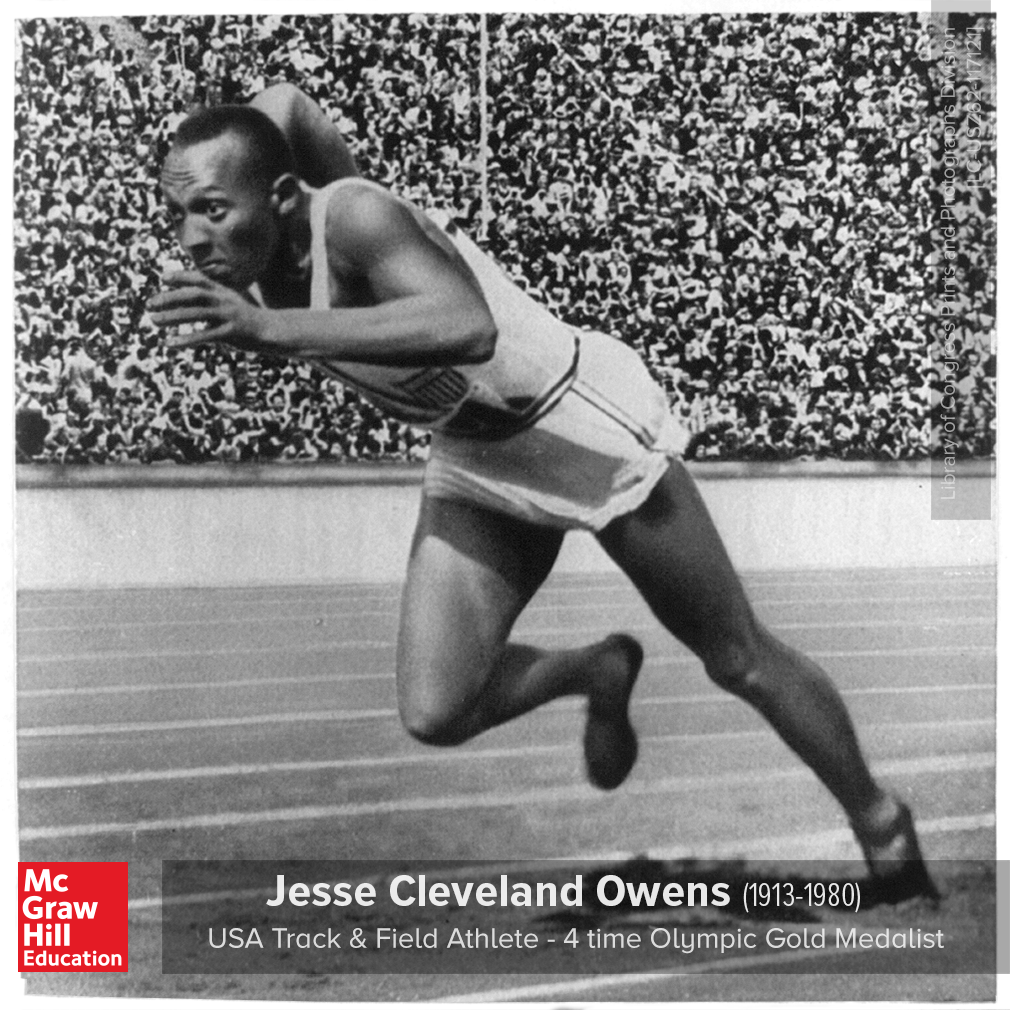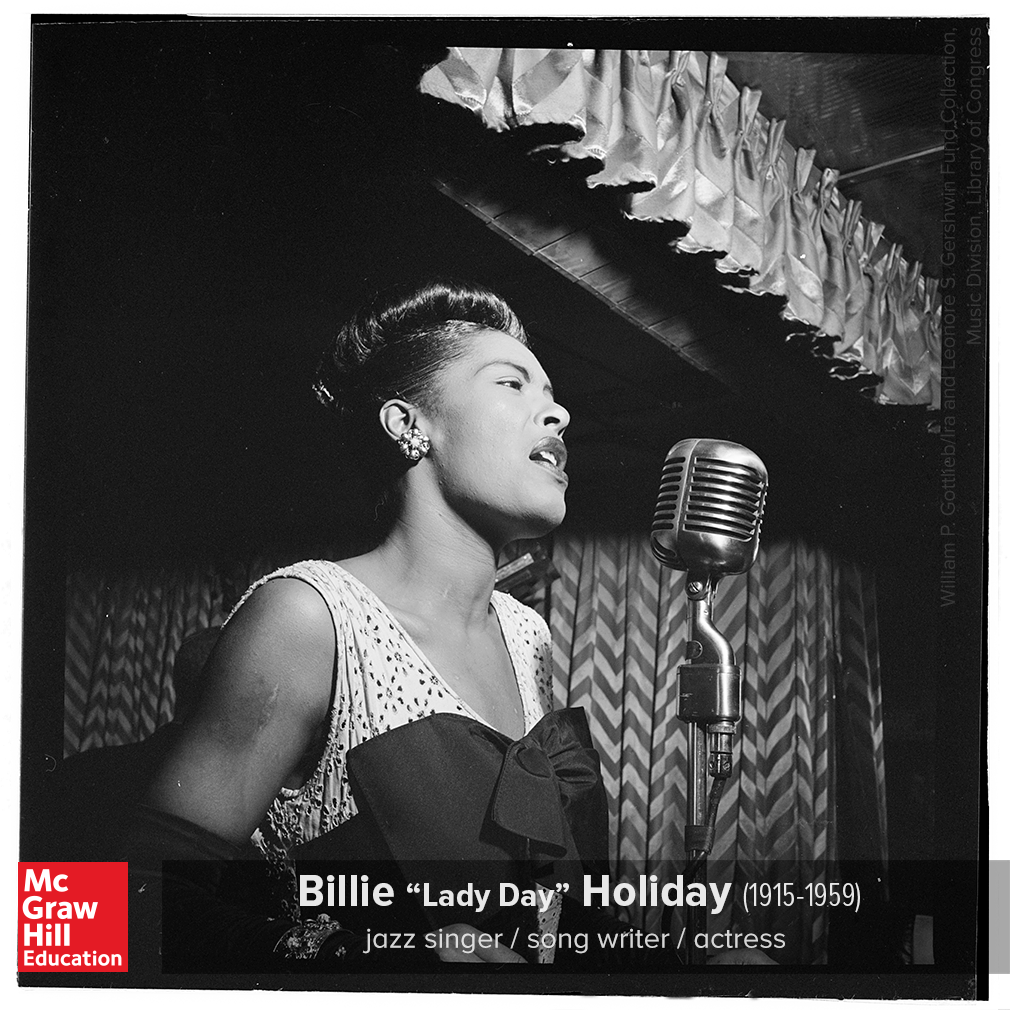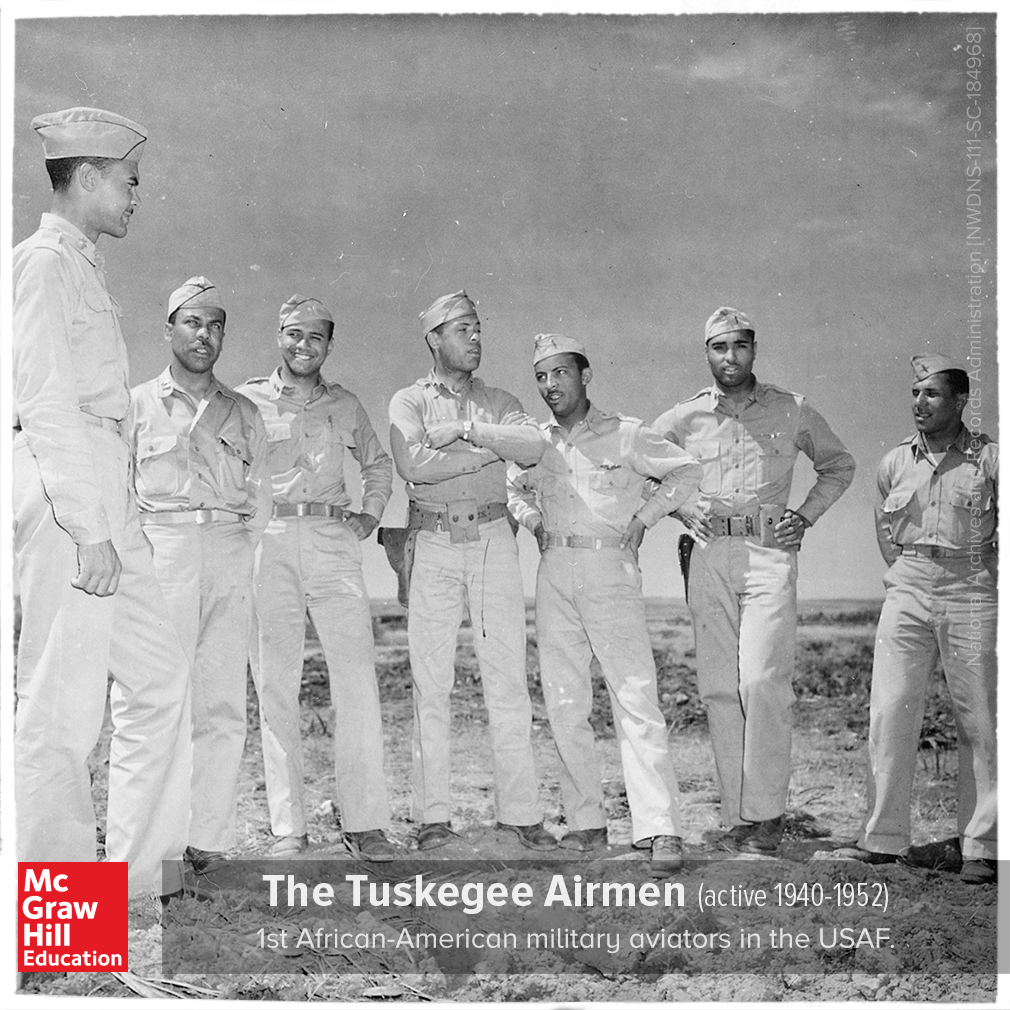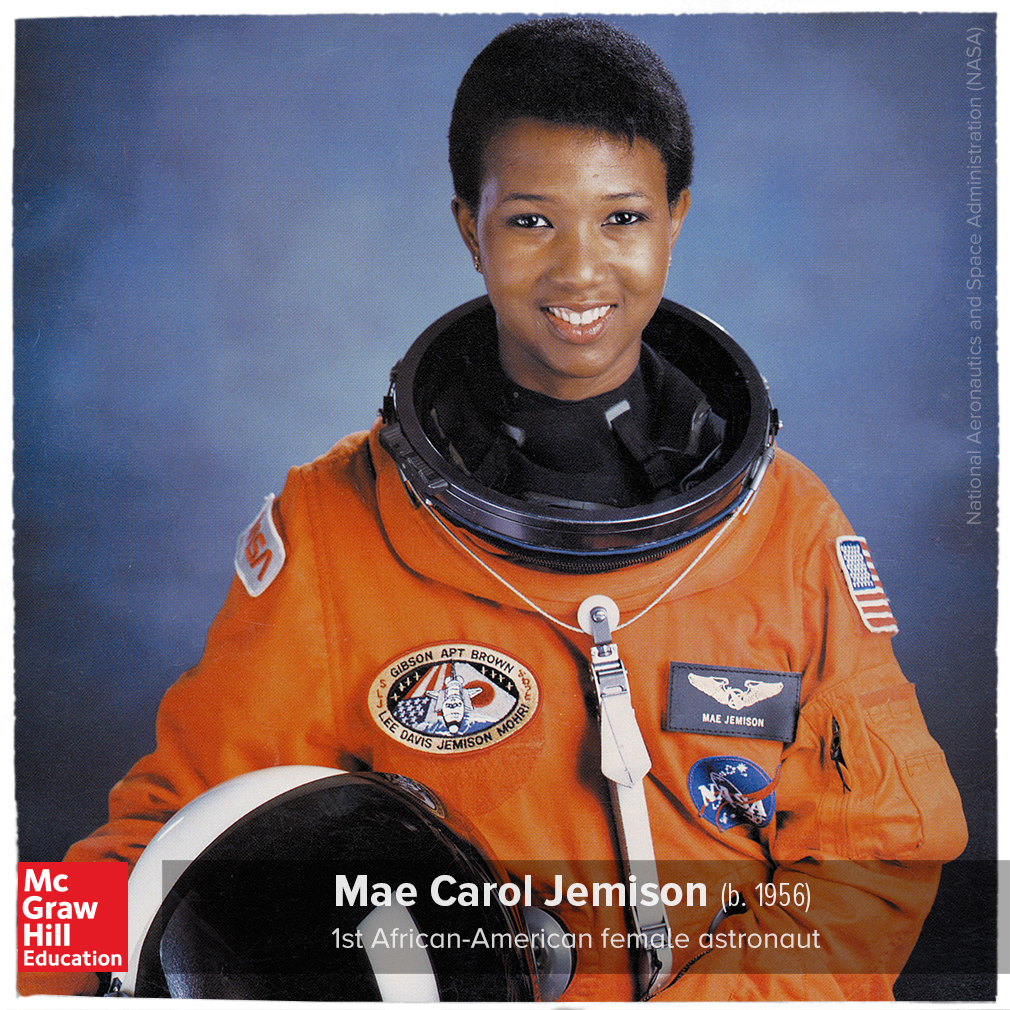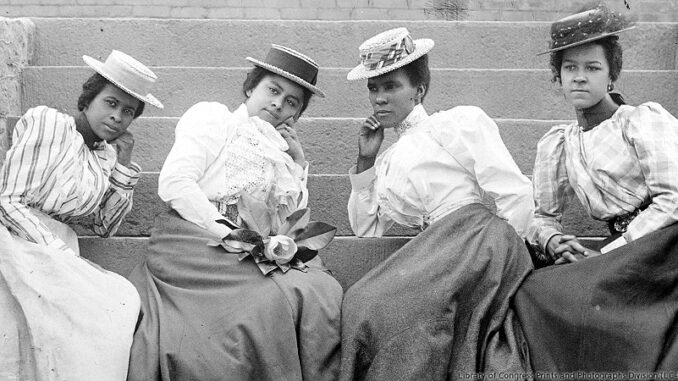
To commemorate Black History Month, btw offers our annual snapshot of some of our most influential and culturally significant African American men and women.
W.E.B. Du Bois
|
|---|
Marian Anderson
While considerably lesser known than Billie Holiday and Louis Armstrong, Andersen was an important singer in the tradition of classical music. In addition to her popularity in the concert hall, she became a prominent voice in the struggle for equal rights. In an era when African American artists were often not allowed perform for integrated audiences, Andersen was invited by President Franklin Roosevelt to sing on the steps of the Lincoln Memorial in front of a crowd of 75,000 people. She was an active participant during the civil rights movement and went on to become a goodwill ambassador for the U.S. State department. |
Louis Armstrong
Another undisputed legend of the jazz era, “Pops” or “Satchmo” as he was nicknamed, was a trumpeter and singer. Born and raised in New Orleans, Louisiana, Armstrong was heavily influenced by the music native to that area (including brass bands, as well as blues musicians). He played and recorded in Chicago and New York and toured extensively across the world throughout his entire life. He is considered one of the most influential figures of American music because of his immense talent, the way he improvised while playing, and for his unique vocal style. |
Jesse Owens
One of our great American athletes, Owens was a track and field phenomenon. Despite being a frail child due to chronic respiratory problems, Owens grew strong from hard manual labor. Born in Alabama, he moved to Ohio with his family and attended high school and college. He set many records in various events track events. But it was the 1936 Summer Olympics where Owens captured the world’s attention. Because the Games took place in Germany just before the beginning of World War II, African Americans were treated with overt hostility by the Nazi party who ruled Germany at the time. Owens prevailed as the most dominant athlete in the Games, winning four gold medals. |
Billie Holiday
Widely considered as one of the greatest singers of the jazz era, Holiday began singing in New York nightclubs in the 1930s. After catching the attention of legendary producer John Hammond, she began to record and tour with various big bands, including Benny Goodman, Count Basie and Artie Shaw. She was one of the first African American singers to front all-white band and was often subject to overt racism. Her signature song is “Strange Fruit,” a haunting song about lynching (the practice of killing black men by mob action). Holiday’s life was ultimately shortened by hard living and she died at age 44. |
The Tuskegee Airmen
In 1941, an African American college student named Yancey Williams filed a lawsuit against the U.S. Army to allow him into the Air Corps (the Air Force was not yet a separate entity). The Army, which had been segregated at that time, would not integrate the corps, but instead created a training program in Tuskegee, Alabama and enrolled 239 African American aviators. Led by Benjamin O. Davis (the first African American general in the Army), the airmen continued to face discrimination when they joined the fighting in World War II. A total of 992 pilots were trained at the Tuskegee Institute. Together, they accumulated an impressive number of combat accomplishments. In 2007, they were collectively awarded the Congressional Gold Medal by Congress for their impact on American history and culture. |
Mae Jemison
In addition to a deep love of the arts (particularly dance), Jemison became a medical doctor before becoming the first African American woman to travel in space. Born in Alabama and raised in Chicago, Jemison joined the Peace Corps after she completed medical school and was assigned to Sierra Leone and Liberia. She joined NASA’s astronaut program in 1987, joining the Space Shuttle Endeavor mission STS-47 in 1992 to conduct scientific experiments. After leaving NASA, she became a college professor in environmental studies and continues to lend her support to causes that encourage women and minorities to pursue science. |

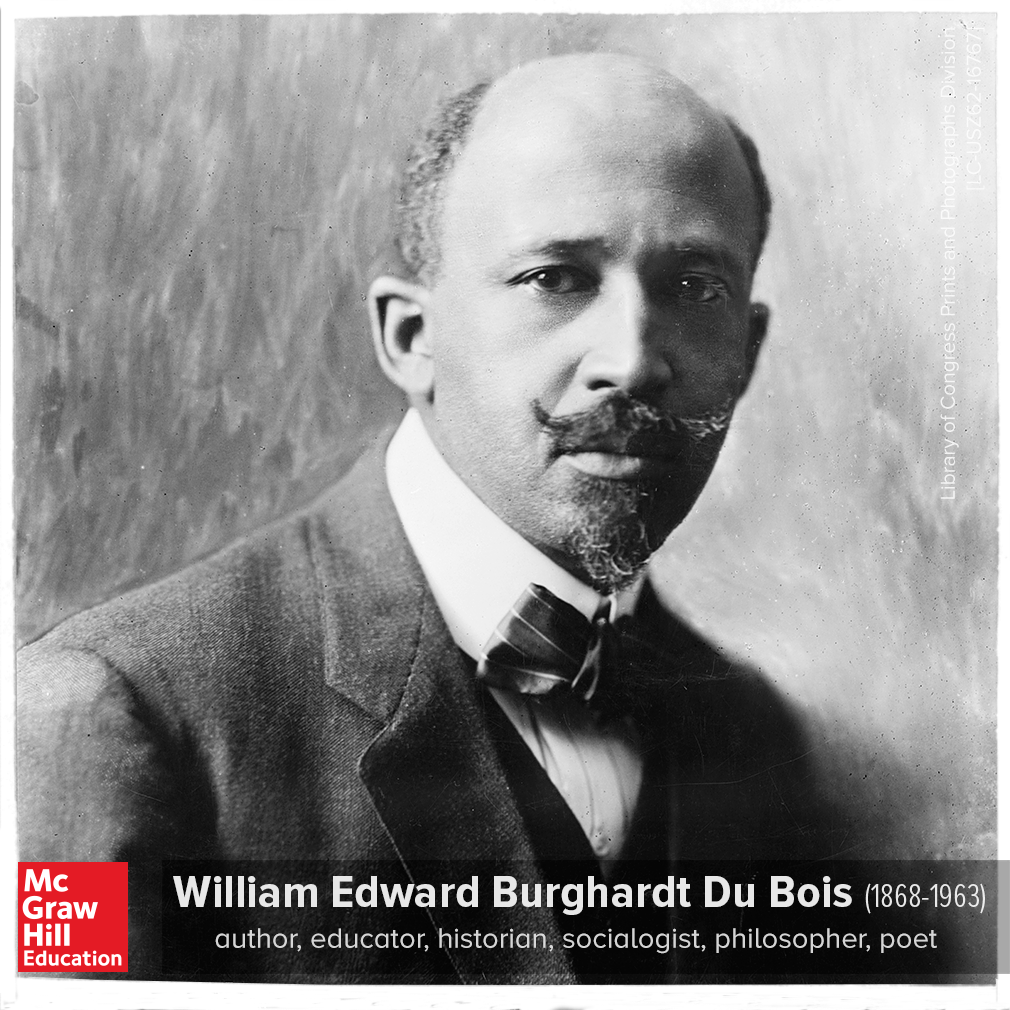 William Edward Burghardt DuBois is a figure commonly remembered in Black History Month recognitions. However, he remains a difficult person to categorize in just one area. He was a scholar, writer, researcher, educator, and activist. He attended Harvard University, receiving a PhD in history in 1895. His most famous book, The Souls of Black Folk, was published in 1903. DuBois’ views on combating racism were controversial, saying that the “only effective strategy against racism was agitation,” and making a case for voluntary segregation. He taught college for many years and continued to publish articles and books.
William Edward Burghardt DuBois is a figure commonly remembered in Black History Month recognitions. However, he remains a difficult person to categorize in just one area. He was a scholar, writer, researcher, educator, and activist. He attended Harvard University, receiving a PhD in history in 1895. His most famous book, The Souls of Black Folk, was published in 1903. DuBois’ views on combating racism were controversial, saying that the “only effective strategy against racism was agitation,” and making a case for voluntary segregation. He taught college for many years and continued to publish articles and books.